Kasuri Methi Leaves (Dried Fenugreek Leaves)
₨ 55 – ₨ 700Price range: ₨ 55 through ₨ 700
| Packing Available | 100 GM, 50 GM, 250 GM, 500 GM, 1000 GM |
|---|
Description
Embark on a culinary odyssey with our exceptional offering: The Finest Quality Kasuri Methi, a jewel in our curated collection. Sourced with utmost care and expertise, our Kasuri Methi, or Dried Fenugreek Leaves, stands as a testament to unparalleled flavor and authenticity. Each leaf is sun-dried to perfection, preserving its unique bitter-sweet profile and aromatic essence. Elevate your dishes with the distinctive taste and fragrance that our premium Kasuri Methi brings to your kitchen. A culinary essential, these leaves add a layer of sophistication to your recipes, making every meal an exquisite masterpiece. Immerse yourself in the world of flavor perfection with our meticulously packed Kasuri Methi – where quality meets culinary excellence.
Kasuri methi, also known as dried fenugreek leaves, is a popular herb used in Indian cuisine for its distinctive flavor. It is made by drying fresh fenugreek leaves and has a slightly bitter, earthy taste. Here are some common uses and potential benefits of Kasuri methi.
Uses
Curries and Gravies:
Kasuri methi is a key ingredient in many Indian curries and gravies, adding a unique flavor and aroma.
Dals and Lentil Dishes:
Used in lentil-based dishes, such as dal, to enhance the overall taste.
Vegetarian and Meat Dishes:
Added to both vegetarian and meat-based dishes for its aromatic and slightly bitter notes.
Breads and Roties:
Kasuri methi is often sprinkled over bread, especially in popular dishes like naan and paratha, giving them a distinctive taste.
Rice Dishes:
Used in biryanis and pulauo to add a layer of flavor to the rice.
Marinades and Spice Mixes:
Included in marinades for meats and poultry, as well as in various spice blends, to enhance the overall flavor profile.
Snacks:
Sprinkled on snacks like samosas and pakoras for a unique taste.
Benefits
Digestive Health:
Kasuri methi has been traditionally used to aid digestion and reduce digestive issues.
Appetite Regulation:
Some believe that Kasuri methi may help regulate appetite and support weight management.
Blood Sugar Regulation:
Fenugreek, the main component in Kasuri methi, has been studied for its potential to help regulate blood sugar levels.
Lactation Support:
Fenugreek, in general, is known for its galactagogue properties and is often used to support lactation in breastfeeding mothers.
Anti-Inflammatory Effects:
Fenugreek has compounds with anti-inflammatory properties that may contribute to reducing inflammation.
Cholesterol Management:
Some studies suggest that fenugreek may have a positive impact on cholesterol levels, supporting cardiovascular health.
Aid for Respiratory Conditions:
Kasuri methi is believed to have benefits for respiratory health and may be used in traditional remedies for coughs and congestion.
Rich in Nutrients:
Kasuri methi contains vitamins and minerals, including iron, potassium, and vitamin C.
Anti-Cancer Properties:
While more research is needed, some studies have explored the potential anticancer effects of fenugreek.
Skin Health:
Fenugreek has been traditionally used in skincare remedies for its potential benefits for the skin.
As with any herb or spice, Kasuri methi should be consumed in moderation. Individuals with specific health concerns or conditions should consult with a healthcare professional. Including Kasuri methi in your cooking can not only enhance the flavor of your dishes but also provide potential health benefits.
Storage Instructions
Keep Spices in a Cool, Dark Place:
Store spices away from direct sunlight and heat, as exposure to light and high temperatures can cause them to lose flavor and potency. A cool, dark pantry or cabinet is ideal.
Use Airtight Containers:
Transfer spices to airtight containers, such as glass jars with tight-sealing lids or metal tins. This helps to prevent moisture, air, and light from affecting the quality of the spices.
Avoid Moisture:
Keep spices away from moisture and humidity. Moisture can cause clumping and may lead to the growth of mold. Do not store spice containers near the stove, dishwasher, or sink.
Label Clearly:
Label your spice containers clearly with the name and date of purchase. This helps you identify spices easily and ensures you use them while they are still fresh.
Store Whole and Ground Spices Separately:
Whole spices generally have a longer shelf life than ground ones. Consider storing them separately and grinding as needed for optimal flavor.
Herbs and Dried Leaves:
Dried herbs and leaves should be stored in airtight containers away from heat and light. Consider keeping them in the refrigerator for extended freshness.
By following these spice storage tips, you can ensure that your spices remain flavorful and potent, enhancing the taste of your culinary creations.
Related product
-
Turmeric Powder (Khalis Haldi Powder)
₨ 295 – ₨ 995Price range: ₨ 295 through ₨ 995 -
Black Pepper Powder (Teekhi Kali Mirch Powder)
₨ 800 – ₨ 2,995Price range: ₨ 800 through ₨ 2,995 -
Whole White Pepper (Dakhni Mirch)
₨ 900 – ₨ 3,700Price range: ₨ 900 through ₨ 3,700 -
White Cumin (Whole & Powder)
₨ 900 – ₨ 3,300Price range: ₨ 900 through ₨ 3,300 -
Black Cumin (Whole & Powder)
₨ 900 – ₨ 3,300Price range: ₨ 900 through ₨ 3,300 -
Cinnamon Sticks
₨ 400 – ₨ 1,400Price range: ₨ 400 through ₨ 1,400 -
Bay Leaves
₨ 80 – ₨ 1,050Price range: ₨ 80 through ₨ 1,050 -
Black Cardamom
₨ 600 – ₨ 10,500Price range: ₨ 600 through ₨ 10,500
Copyright 2023 © TheSpiceMan. All Rights Reserved. Develop By ZABS Creatives

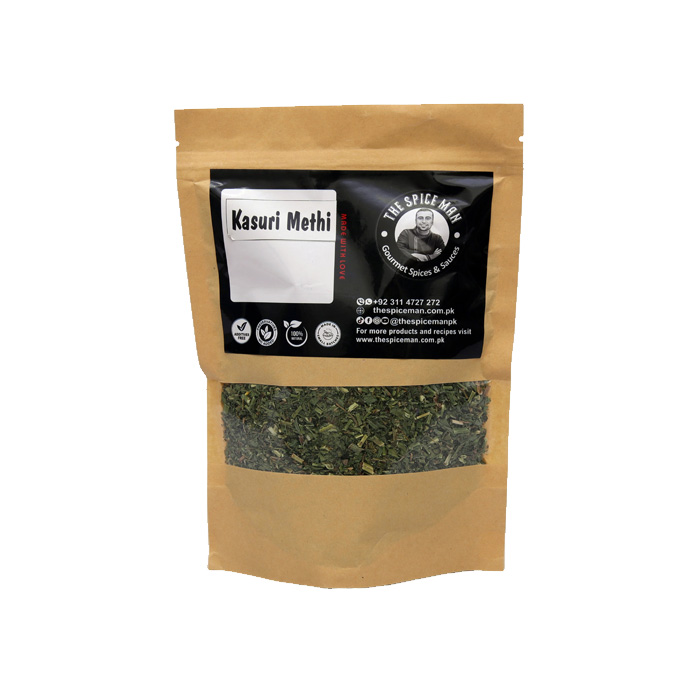
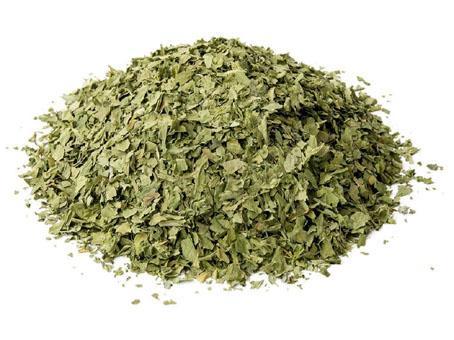
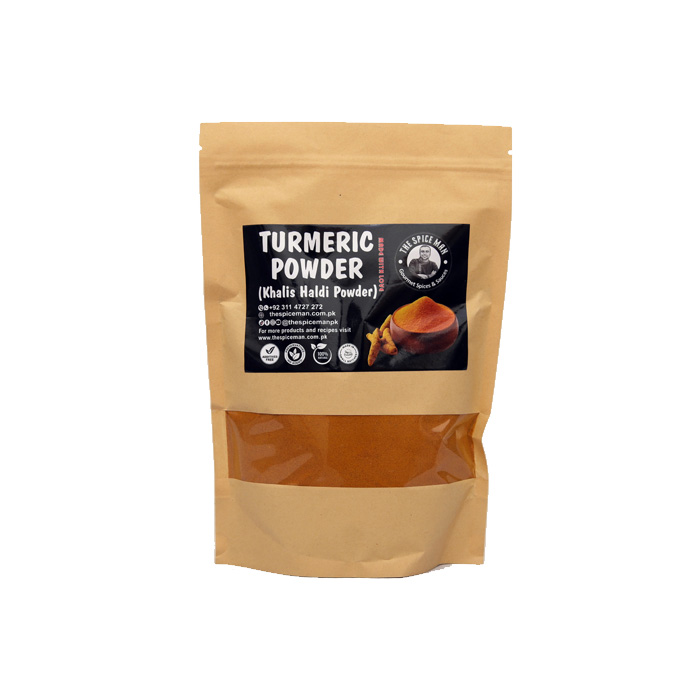
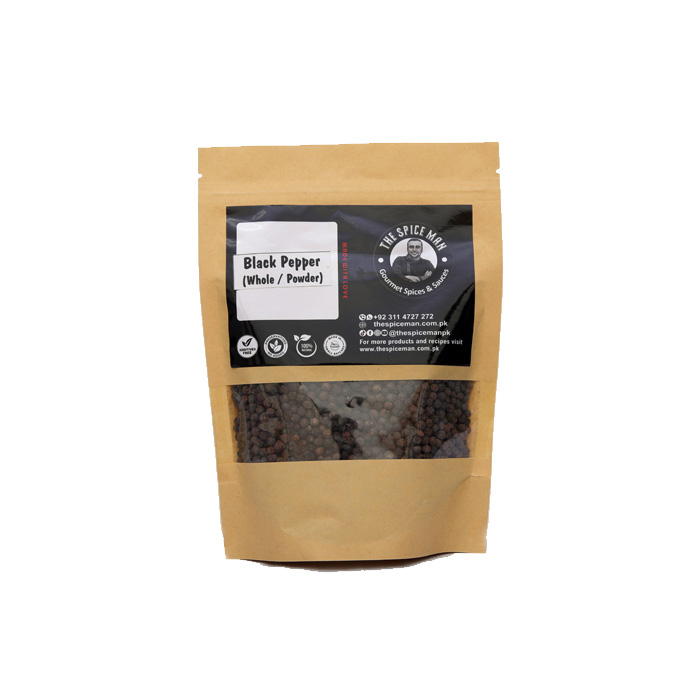
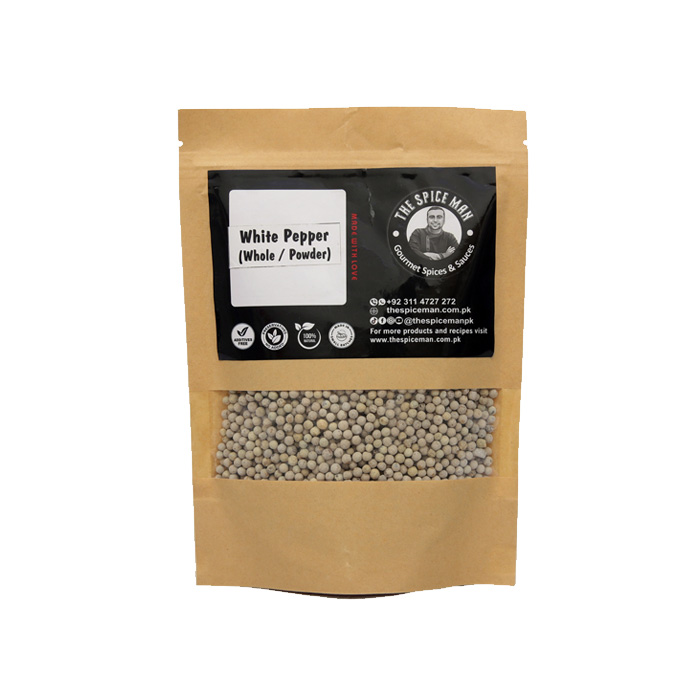
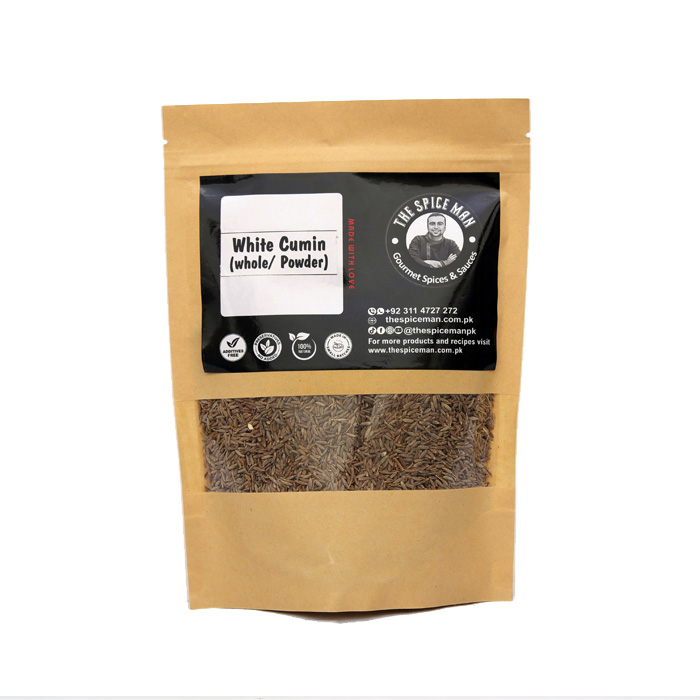

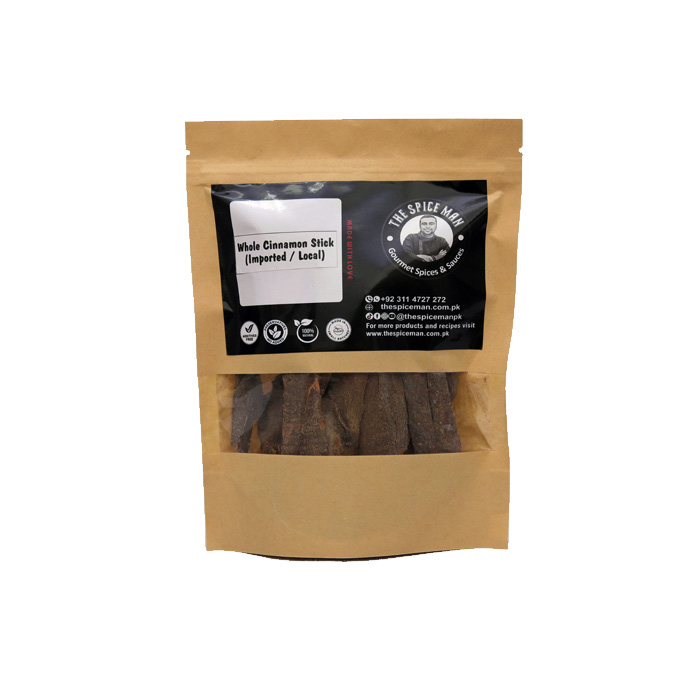

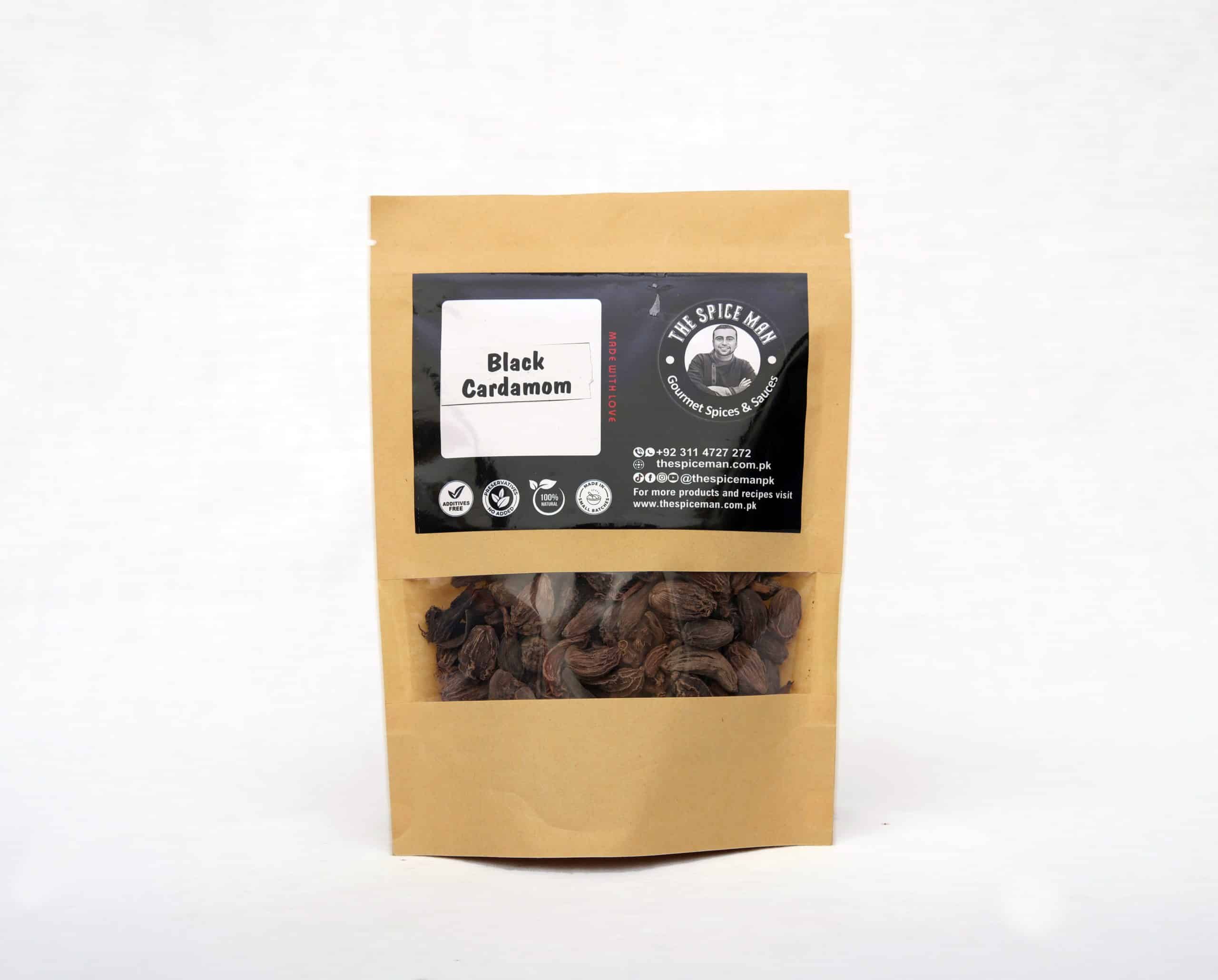
Reviews
There are no reviews yet.